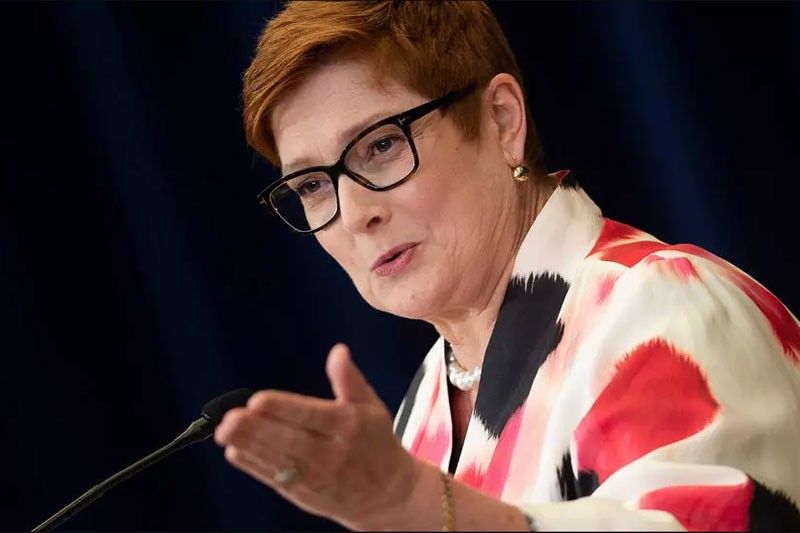Australia scraps state's Belt and Road deal with China, Beijing rails at 'provocative' move

SYDNEY, Australia — Australia said Wednesday it would revoke a state government's deal to join China's Belt and Road Initiative because it was inconsistent with the nation's foreign policy — prompting an angry response from Beijing.
Canberra last year introduced new laws widely seen as targeting China that allow it to scrap any agreements between state authorities and foreign countries deemed to threaten the national interest.
Foreign Minister Marise Payne said Wednesday the federal government would override the Victorian state government's decision to sign up to the Belt and Road Initiative (BRI) — a vast network of investments that critics say is cover for Beijing creating geopolitical and financial leverage.
The move prompted the Chinese embassy in Australia to rail at what it called the "unreasonable and provocative" move, as relations between the two countries continue to freefall.
Payne said two documents signed in 2018 and 2019 respectively - a memorandum of understanding and framework agreement — were among four she would tear up under the new powers.
"I consider these four arrangements to be inconsistent with Australia's foreign policy or adverse to our foreign relations," she said in a statement.
The announcement comes at a time of deteriorating relations between Beijing and Canberra, with the two governments at loggerheads over trade and competing for influence in the Pacific.
The BRI is the flagship of President Xi Jinping's geostrategic vision for the Asia-Pacific region, and damage to its progress is likely to further rupture relations between the two countries.
"The BRI cooperation between China and the Victoria state is conducive to deepening economic and trade relations between the two sides," said a statement attributed to a spokesperson at the Chinese embassy in Australia released early Thursday.
"This is another unreasonable and provocative move taken by the Australian side against China. It is bound to bring further damage to bilateral relations, and will only end up hurting itself," the statement added.
Australia has already infuriated China by calling for an independent probe into the origins of the coronavirus pandemic, which emerged in the Chinese city of Wuhan.
Limiting Chinese influence
The BRI agreements were inked after Victoria launched an "ambitious" 10-year strategy aimed at bolstering relations with China, but provided only a "framework for future cooperation" and were not legally binding.
But it was widely expected that Canberra would intervene after Prime Minister Scott Morrison voiced his opposition to the plan.
Under Australia's constitution, the federal government is responsible for foreign affairs and defence. States typically deliver services such as health and education but in reality there is frequent overlap.
A Victorian government spokeswoman told national broadcaster ABC: "The Foreign Relations Act is entirely a matter for the Commonwealth government."
Payne also said she would revoke a 2004 memorandum of understanding between Victoria's education department and Iran, as well as a scientific cooperation agreement the department signed with Syria in 1999.
The new legislation applies to publicly-funded institutions but does not cover commercial deals.
Canberra has already taken steps to limit China's influence in the country, including by banning controversial telecoms giant Huawei from building Australia's 5G network and tightening foreign investment laws for corporations.
Diplomatic relations between the two countries have reached their lowest ebb since the deadly 1989 Tiananmen Square crackdown, with clashes throughout 2020 extending to human rights issues in Xinjiang and Hong Kong.
China has slapped tariffs on more than a dozen Australian products in what many see as punishment for Canberra's increasingly assertive stance against its largest trading partner.
Payne said she would "continue to consider foreign arrangements" but expected the "overwhelming majority" would not be affected.
However the presence of Chinese government-backed Confucius Institutes at Australia's public universities remain in doubt, amid ongoing criticism they promote the Communist Party's self-serving version of Chinese culture and history.
- Latest
- Trending






























